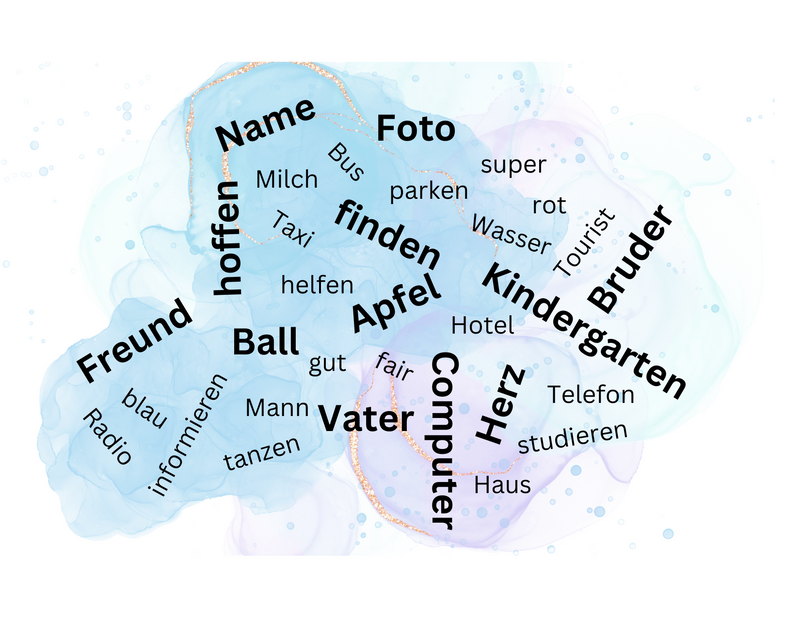German vs English
Ich habe Äpfel im Garten.
Can you guess what that German sentence means? Keep reading to find out.
English and German have quite a bit in common. Comparing and contrasting the two languages is a great way to start your German language journey.
 Image created by the author based on information from Europe Language Jobs
Image created by the author based on information from Europe Language Jobs
Where to start
Before you dive too deep into German, take a minute to learn the basics. As a German teacher, I'll help you get your feet wet.

Vocabulary
To start building your vocabulary, it's a great idea to look at the 100 most frequently used words in the German language. These will include important verbs like haben (to have) and pronouns such as ich (I).
Grammar
Get familiar with some of the basic concepts of the German language.
The verb takes the second position in a statement sentence.
Ich habe Äpfel im Garten.
As for nouns, they're always capitalized in German! This makes it easy to spot them in a sentence.
Ich habe Äpfel im Garten.
The Alphabet and pronunciation
Learn the alphabet, and the sounds the letters make. You'll find that many consonants make the same sound as in English. But did you notice the two dots on top of the vowel a in Äpfel? Ä/ä is one of three so-called "Umlauts" we Germans have: ä, ö, ü. The ä sounds like the a in apple!
Click to listen to our example sentence:
Quiz
What does "Ich habe Äpfel im Garten" mean?
Immersion

Now dive! Immerse yourself into the German language and culture.
Children learn language by listening to it being spoken and trying out their language skills. This has proven to be a great way to learn a new language for grown ups, too!
Make use of your interests and search for:
a German language (learning) podcasts
a language exchange partner
an intensive course
a German vlogger
your favorite TV show in German
a German music artist
Make use of all four skills: reading, listening, speaking, and writing! And don't be afraid of making mistakes — that's how you learn.
More is...more
Think volume but also consistency.
Our brain retains information best if we practice every day. Taking one little step every day will amount to a lot! Imagine you set your goal to learning 5 German words every day. By the end of a year, you would know more than 1800 German words!

Set goals
Set goals to hold yourself accountable. You can start with the big picture, "Why do I want to learn German?" and go into more detail, "How much German do I want to know in 3 months time?" Be realistic about it!
Quiz
Amber (27) wants to learn German fast because she is moving to Germany in a month. What's a realistic goal if she has 10 min a day to learn German before her move? Pick all that apply:
Take Action

Your feedback matters to us.
This Byte helped me better understand the topic.
